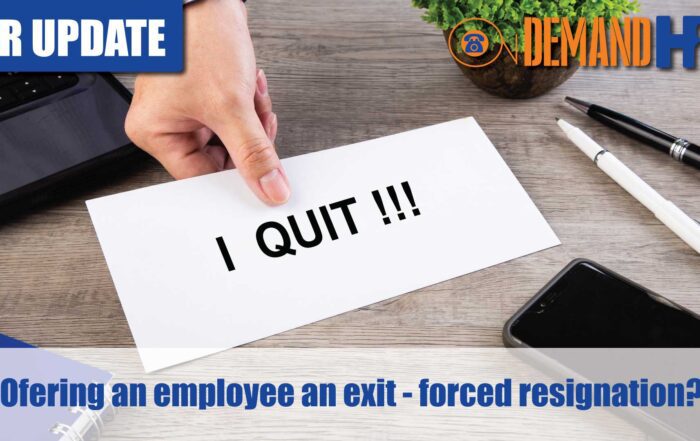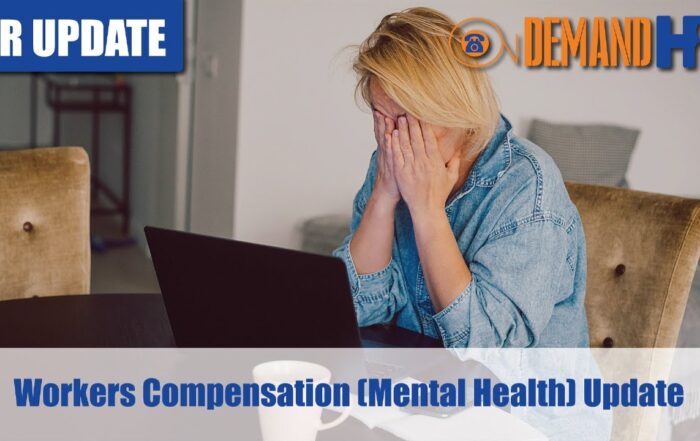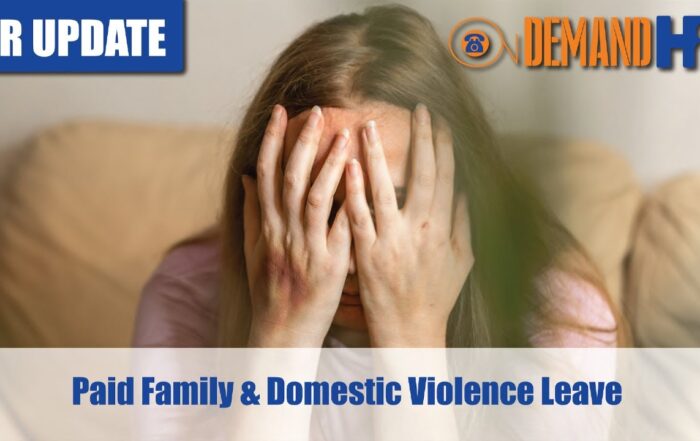Can I Require An Employee To Get The Coivd Vaccination
Coivid 19 has presented new Human Resources and Workplace relations issues to tackle. One of the most difficult of these is answering the question of can you direct your employees to get vaccinated?
Please see below for a full transcript of the video.
Share the HR or workplace relations challenge facing your business and one of our experienced consultants will be in touch within 24 hours with a strategic action plan or discover the best strategy yourself by accessing out free online training library.
Transcript
0:00
Let’s talk about vaccinations is going to be very interesting in the coming months. So no precedent yet on COVID-19 vaccinations. Nothing in the commission or in the court systems that we’ve seen.
There is commentary, a couple of quotes. I’ve got there, some legal experts, some legal experts saying that it may be a fair and reasonable directive and some going further to say that employers may even have a positive obligation to protect others and protect other employees and customers.
There is a case there is one case that we can look to for this, and this is a case involving Good Start Learning. Now, this was an unfair dismissal claim in a childcare circumstance, the employee refused to have a flu vaccination. In this situation, the case was actually last year. And the case was dismissed on procedural grounds. So when I say procedural grounds, I don’t know exactly what procedural ground was. Out of time. Thanks for thanks for that, Andrew. So the applicant actually filed too late. And it’s a shame because had they filed on time, it would have been great to see this matter, go to hearing and give us some guidance on what the principles are.
But the Deputy President, Asbury indicated that both sides of the argument released equally, equally arguable, and actually went further to say that even the employer may very well have been justified in its position to have this particular requirement for a flu vaccination. But ultimately, the commissioner was spared by the fact that the employee filed out of time and he had a basis to dismiss it that wasn’t relating to the merits of the case.
So it’s going to be interesting to see that if that was the sort of attitude taken to a flu vaccination, whether the similar attitude will be taken to a COVID vaccination, bearing in mind that the commissioner an alternative commissioner may very well depart from that particular case, they may not look at this case and say, Well, I think this is valid for these reasons, they may very well come up with a whole bunch of other reasons why a vaccination or is either a vaccination is either valid or invalid and I think what we’re going to see in the coming months, there’s certainly going to be people that are going to be opposed to taking to being vaccinated in employment.
And it’s probably going to happen in it’s going to happen in two types of industries. It’s going to happen in industries, where the industry has said overall, that you must vaccinate, according to some government requirements. And there’s going to be others, where employers potentially go out on a limb and say, We want employees to vaccinate, we’re requiring employees to vaccinate even though the government doesn’t require us to do it.
So there’s going to be two types of situations. And it’s going to be very interesting. I think one of the key things that we looked at, and certainly if you look at some of the opinion on this is that it’s going to come down to whether it’s a valid and reasonable directive.
And two things we’re going to have to look at from a discrimination point of view are religious reasons for refusal, because there will be some with religious beliefs that will refuse. And whether that’s going to be enough for a discrimination, or general protections based claim to be successful or not, is then debatable, because just because you have a discriminatory ground doesn’t necessarily mean that the employer didn’t have a valid basis to either terminate or take a particular action. And I’ll give you an example of this. So you know, in a situation where someone, for example, has a physical disability, and they apply for a job that has certain, let’s say, physical requirements, to lift to move to do things that a person who’s disabled can’t do. Well, not employing that person may be discrimination, but it’s not unlawful in that situation.
So it’s going to be interesting to see, trying to put this in a vaccination context, whether or not those religious reasons, or it’s interesting that people talk about religious reasons? I think also, you could probably throw in the bucket there political reasons, because I think there are a number of people that are not necessarily religiously opposed to this vaccinations, but may be politically opposed to the vaccinations, they believe it represents a certain value set they don’t agree with. So it will be very interesting to see how that plays out as well.
Not really much more than that to share at this point, except that to stay tuned on this. And what we’re sort of saying to clients right now is the general advice I’ve been giving is to do nothing more than the government requires of you because if you are doing more than the government requires of you in vaccination terms, you’re potentially you’re potentially accepting the responsibilities associated with anything that may go wrong in that regard. And you know, that there is certainly there’s some evidence of vaccinations going wrong in some situations already. There’s been deaths in some countries from the vaccine, the vaccine there’s been there’s an overdose situation, I believe in Australia the other day. So that is something that we’ll certainly have to see how it how it plays out. So.






